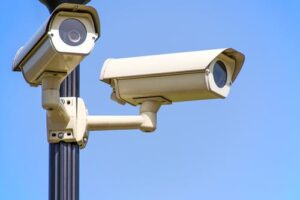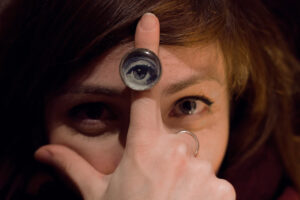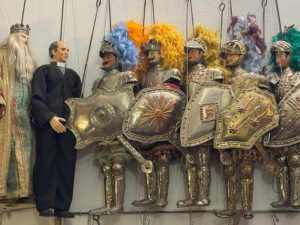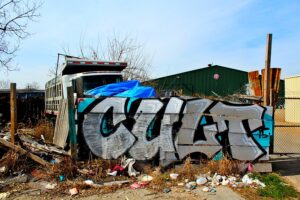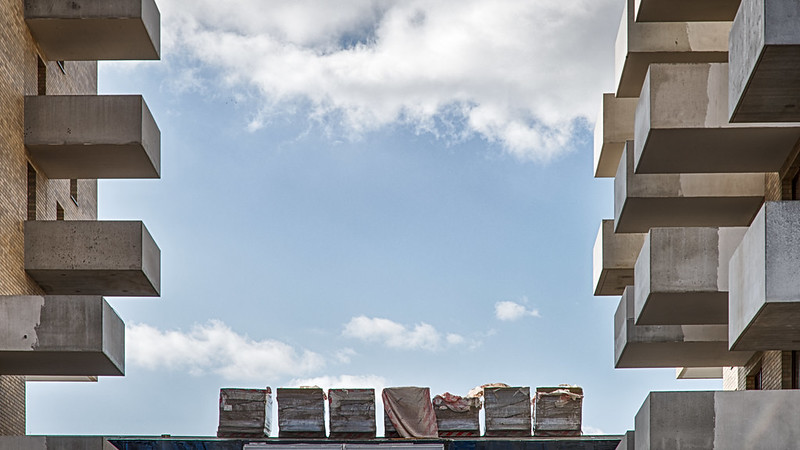
There was a time when the word enforcer belonged in crime novels and gangster films. Today, you don’t need to squint too hard to notice that enforcement has seeped into everyday life — not from the mob, but from the institutions that claim to serve and protect us. Centrelink, medical staff, police, and educators have become the quiet troops of state power.
The question is: are they protecting us, or controlling us?
Contents
- 1 The Subtle Machinery of Social Control
- 2 Centrelink Staff: The Financial Enforcers
- 3 Medical Staff: Policing the Body and Mind
- 4 Police: The Traditional Muscle
- 5 Educators: Shaping Obedience Early
- 6 The Interlocking Web
- 7 Enter China’s Social Credit System: The Next Step?
- 8 Why It Matters
- 9 Are We Sleepwalking Into Authoritarianism?
- 10 Conclusion
- 11 FAQs
- 12 Related Articles
The Subtle Machinery of Social Control
Social control isn’t always about handcuffs and nightsticks. It’s about guiding behavior, setting boundaries, and ensuring compliance. The state has learned that subtlety works better than overt force — people rebel against batons, but they’ll swallow “policy,” “guidelines,” and “best practice” with barely a grumble.
In Australia, four professions stand out as frontline enforcers of this system:
- Centrelink staff – gatekeepers of financial survival.
- Medical staff – arbiters of health, sanity, and “fitness.”
- Police – traditional hard enforcers, now supplemented by softer counterparts.
- Educators – shaping the next generation’s beliefs and loyalties.
Centrelink Staff: The Financial Enforcers
Centrelink doesn’t carry guns, but their power is just as sharp. They hold the keys to food on the table, rent paid, and dignity intact. Miss an appointment? Forget a form? Their sanctions can push you to homelessness faster than any eviction notice.
Centrelink’s role is not simply administration — it’s behavioral conditioning. Jobseekers must prove they’re applying for jobs, attending training, and complying with rules, or they risk losing payments. This turns caseworkers into state gatekeepers, ensuring conformity under the banner of “mutual obligation.”
In effect, Centrelink doesn’t just distribute welfare — it enforces obedience.
Medical Staff: Policing the Body and Mind
Doctors and psychiatrists hold enormous authority. They can declare you “fit to work” or “unfit for society.” A diagnosis can open doors to support or slam them shut. Prescriptions can stabilize you, sedate you, or tether you to a lifetime of dependency on Big Pharma.
During the pandemic, medical staff became frontline enforcers of lockdowns, masks, and vaccines. They weren’t just healers — they were the ones who decided who could go to work, who could travel, and who could see family.
Psychiatrists in particular have been dubbed “priests of the therapeutic state.” Their words carry legal weight: a signature can confine someone to a ward against their will. That’s power most police officers would envy.
Police: The Traditional Muscle
No surprise here. Police have always been the visible enforcers of state power. But their role has expanded beyond crime control to enforcing health directives, managing protests, and even patrolling thought-crime via “hate speech” laws.
What’s striking is how seamlessly police now collaborate with the softer enforcers — backing up medical staff when patients resist treatment, standing alongside Centrelink when fraud is suspected, and even working with schools to discipline children.
The badge hasn’t changed. The job description has.
Educators: Shaping Obedience Early
Teachers are rarely thought of as enforcers, but their influence is arguably the deepest. From kindergarten to university, the education system sets the framework for what children believe is normal, acceptable, and unquestionable.
Curriculum choices aren’t neutral — they’re political. What’s taught as “history,” what’s omitted, what’s labeled “hate speech” versus “critical thinking” — all shape future citizens. Disobedience gets branded as “behavioral issues,” often leading straight into the arms of the other enforcers: counsellors, doctors, police.
In short, schools don’t just teach reading and maths. They socialize children into the rules of the state.
The Interlocking Web
The genius (or horror) of modern governance is that these enforcers don’t operate in silos — they form an interlocking web:
- A welfare recipient resists Centrelink’s requirements → referral to medical assessment.
- Doctor deems them non-compliant → Centrelink sanctions payments.
- Patient protests → police step in.
- Their child acts out at school → educator files report, triggering intervention.
Each system feeds the other, creating a loop of surveillance, control, and enforcement that is difficult to escape.
Enter China’s Social Credit System: The Next Step?
If you think this all sounds exaggerated, look to China’s Social Credit System. There, citizens are scored on everything from financial reliability to political loyalty. Late on a bill? Minus points. Post something critical of the government? Minus points.
Your score determines whether you can get a loan, buy a train ticket, or enroll your child in a decent school. In other words: obedience is currency.
Is the Western model heading in the same direction? Some say no — that democracies are too “free” for such a system. But when you realize how much of your life already depends on Centrelink approvals, doctor’s notes, police clearances, and educational assessments, the resemblance is unnervingly close.
The difference is only one of packaging. In China, it’s open and explicit. In the West, it’s fragmented and hidden under layers of “policy.” But the outcome is similar: citizens conditioned to comply.
Why It Matters
Some will argue this is all necessary: society needs rules, and rules need enforcement. True enough. But when the enforcers become overzealous, when compassion is replaced by compliance, society begins to look less like a community and more like a machine.
The deeper issue is that these professions — once seen as helpers — are now instruments of control. Centrelink used to be social support, doctors used to be healers, police used to chase criminals, and teachers used to educate. Increasingly, their role is to ensure obedience to state directives, even when those directives are political, questionable, or harmful.
Are We Sleepwalking Into Authoritarianism?
Here’s the uncomfortable question: are we okay with this? Or are we, like frogs in slowly warming water, failing to notice how enforcement has crept into every corner of life?
It’s not a conspiracy theory to point out that control is most effective when it feels like help. After all, who dares question the doctor, the teacher, or the welfare officer without being labeled “difficult” or “mentally unwell”?
Maybe the real danger isn’t that these groups enforce the state’s power. Maybe it’s that most people have stopped noticing.
Conclusion
Yes, Centrelink staff, medical staff, police, and educators are increasingly the new enforcers of social control for the state. Not because they are bad people — many entered their fields to help. But because the state has quietly weaponized their authority, turning everyday professions into instruments of compliance.
The lines between care and control, between service and enforcement, are blurring. And when those lines blur too far, democracy risks giving way to quiet authoritarianism — not with jackboots, but with clipboards, stethoscopes, and lesson plans.
And if China’s Social Credit System is the future, we may not even notice when obedience becomes the ultimate currency.
FAQs
1. What is meant by “social control”?
Social control refers to the ways society regulates behavior, ensuring people conform to rules, laws, and expectations — often without force.
2. How does Centrelink enforce social control?
By controlling access to welfare payments, Centrelink compels people to meet obligations like job applications and appointments.
3. Why are medical staff considered enforcers?
Because they decide who is “fit” or “unfit,” prescribe treatments that influence compliance, and can even confine people through psychiatric rulings.
4. Isn’t police enforcement normal?
Yes, but their role has expanded from traditional crime-fighting to enforcing health orders, managing protests, and controlling political dissent.
5. How do educators enforce state control?
By shaping children’s beliefs and defining what is considered “normal” behavior. Non-conformity is often escalated to medical or police intervention.
6. What’s the danger of these professions being enforcers?
They lose their original roles as helpers and instead become tools of compliance, blurring the line between service and control.
7. What is China’s Social Credit System?
A government-run scoring system that rates citizens’ behavior, loyalty, and financial habits — determining their access to services and opportunities.
8. Could a Social Credit System come to Australia or the West?
Not necessarily in name, but similar mechanisms already exist through welfare compliance, medical certifications, police checks, and digital surveillance.
9. Is this all just a conspiracy theory?
No. These systems exist and operate daily. The question is how far they expand and how comfortable citizens are with their reach.
10. What can individuals do about it?
Stay informed, question authority respectfully, defend personal freedoms, and build communities that value compassion over blind compliance
